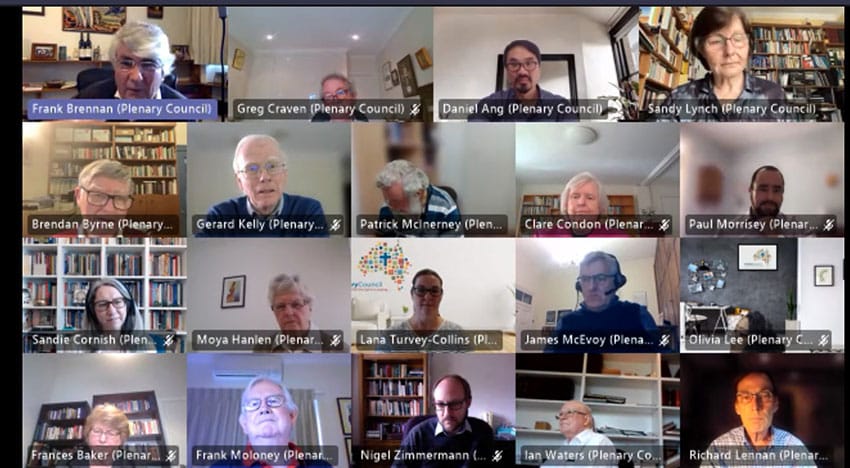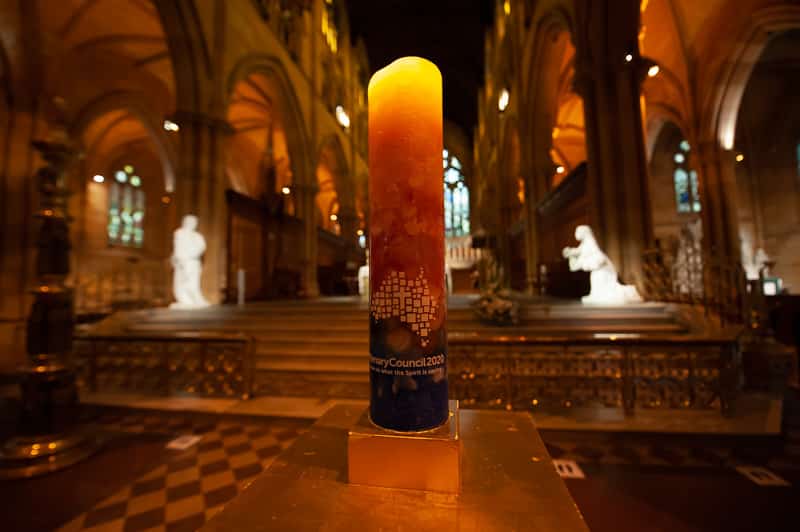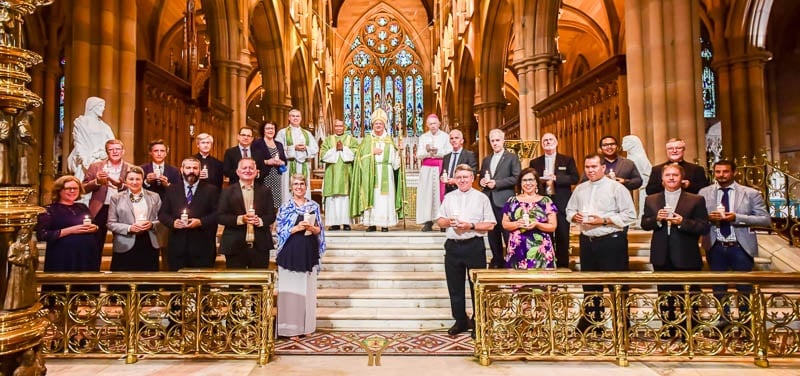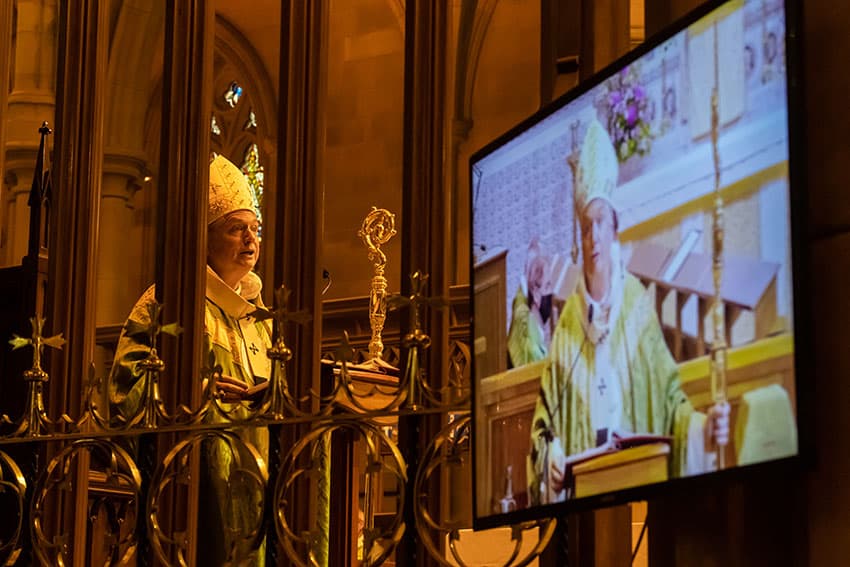
The largest Australian church reform group has called for the Plenary Council process to be halted and restarted, calling the method of drafting proposals to be voted on at the Second Assembly “blatantly improper, cynical … manipulated and gravely compromised”.
In an email sent directly to all Plenary Council members on the evening of 18 February, Australasian Catholic Coalition for Church Reform (ACCCR) co-convenor Peter Johnstone claimed the inclusion of “conservative” individual proposals was tantamount to subversion of the Plenary agenda.
ACCCR has not offered any explanation for how it obtained the email addresses of Plenary Council members to launch its campaign; the addresses are believed to be confidential and held only by the Plenary’s secretariat.
“The ‘First Assembly Proposals’ document therefore ‘lacks any validity or credibility in claiming to present authorised proposals from the First Assembly of the Plenary Council’ and must be withdrawn.”
The “First Assembly Proposals” document, which forms the basis of drafting proposals for the Second Assembly, was stacked with “mostly conservative and even reactionary” individual proposals submitted in a “subversive manner” to influence the agenda of the second assembly in a conservative direction, the ACCCR email said.
The “First Assembly Proposals” document therefore “lacks any validity or credibility in claiming to present authorised proposals from the First Assembly of the Plenary Council” and must be withdrawn.
Johnstone calls for the drafting process to be restarted, for members to be given the chance to prepare new proposals for the second assembly, and for more than “the mere week that has been scheduled” to consider them.

“You are no doubt aware that the situation you face is not unlike that faced by the assembled members of the first Vatican Council who insisted on accepting responsibility for their own agenda and the time necessary to address that significant agenda in the life of the Church,” the ACCCR email concludes.
A further commentary on the Plenary was included in the ACCCR’s email from Fr Brendan Reed, of the Archdiocese of Melbourne, who expressed his surprise at the content of the “First Assembly Proposals” document.
“Clearly the next session of the Plenary Council is going to have to move even more deeply into the discernment of where the Spirit is leading the Church in Australia in the twenty-first century,” Fr Reed wrote.
“It would be ironic if the call for reform from some groups did not come with an openness to conversion”.
“Discernment can’t just be a matter of sorting out all the various views and laying them side by side.”
The ACCCR, an umbrella organisation for various state-based “Concerned Catholics” groups and issues-based lobbies, has been the most vigorous “bloc” in the Plenary process.
Daniel Ang, the Director of Evangelisation for the Archdiocese of Sydney, said “It would be ironic if the call for reform from some groups did not come with an openness to conversion”.

The ACCCR also held an online webinar on 16 February, introduced by the Bishop of Parramatta, Vincent Long, in which participants again raised their frustrations with what they see as insufficiently radical reform at the Plenary Council.
“Modern synodality is grafted on to the old clerical and hierarchical church, where power and authority are vested in the ordained,” Bishop Long said.
“Our experience thus far of the Plenary Council in Australia has illustrated these challenges. Many feel that, at crucial points, the process is controlled by those with power.”
“Synod and council members to work to weed out clericalism and identify those factors which diminish the power of their activity together.”
He praised the inclusion of groups “previously viewed as dissenting or even heretical by the Vatican – such as women’s ordination conference or New Ways ministry” in the upcoming Bishops’ Synod on Synodality.
Lay theologian Dr Elissa Roper, who presented a keynote address on Synodality, called for “synod and council members to work to weed out clericalism and identify those factors which diminish the power of their activity together”.
“Let us celebrate and deepen our identity together, and let us identify and root out that which diminishes us, especially for and with those people whose voices are not respected,” she said.

When approached for comment, Plenary Council vice-president Bishop Shane Mackinlay said the Plenary has “been a time for conversation with one another to prayerfully discern the way forward for the Church in Australia”.
“The Plenary Council’s various committees are providing a range of documents and resources to help the Members continue their preparation,” Bishop Mackinlay added.
“Members have also been encouraged to engage widely as they prepare for the second assembly: with family, friends, their local congregations and the broader Catholic community, as well as with one another.
“We have seen the Holy Spirit at work through these four years, and we trust that the Spirit will carry us through our preparation for the second assembly.”
“In all their prayer, discernment, reflection and conversation, I am confident they will continue to focus on the Council’s central question: What do you think God is asking of us in Australia at this time?
“We have seen the Holy Spirit at work through these four years, and we trust that the Spirit will carry us through our preparation for the second assembly, and eventually in its celebration when we gather in Sydney.”
Related Articles:
